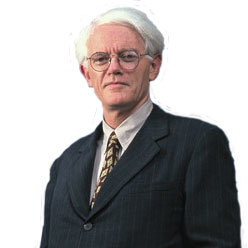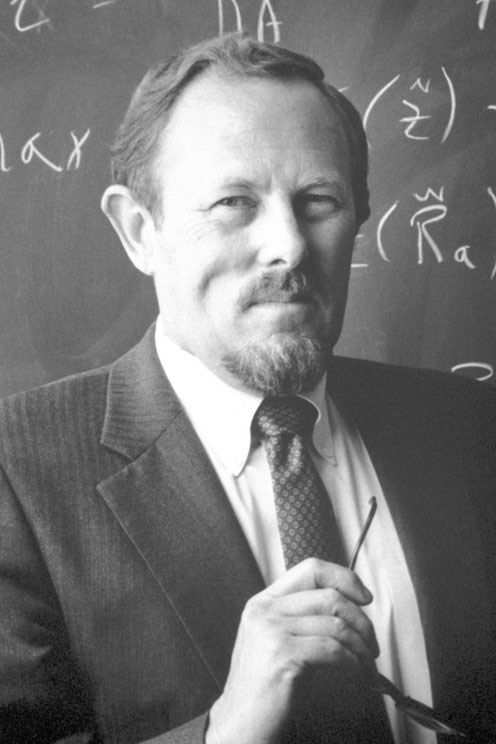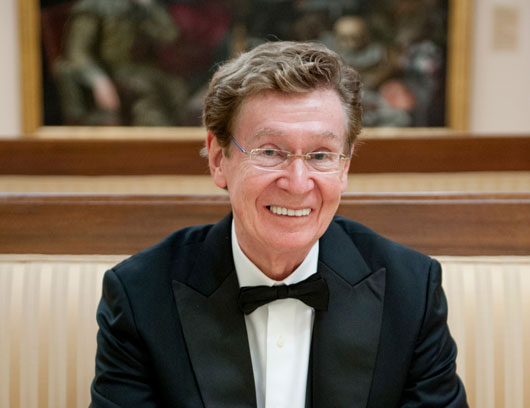If you're somebody who closely tracks the performance of their mutual funds, you may have, at some point, wondered who the best mutual fund managers are. That is a question that we’ve seen pop up plenty of times. To answer it, we've compiled a list of arguably the top five all-time best mutual fund managers below.
Warren E. Buffett, Berkshire Hathaway (NYSE: BRK-B)

Before starting the Berkshire BRK-B (BRK), most people would have known who Warren Buffett was before he began to the Berkshire BRK-B (BRK). However, it wasn't until the birth of Berkshire Hathaway that he became an international legend and arguably one of the most successful investors in history.
It's important to note that while Buffett is often associated with Berkshire Hathaway (BRK-B), he actually only owned the company for less than 10 years. In his first full decade at the company, he invested around $470 million and made a huge pile of money. He sold a majority stake to GE Capital in 1987 for $7.5 billion and reaped more than $4 billion in profits from it.
He was also known for being very cautious when deciding on stock investments. He didn't invest alongside legendary contrarian investor George Soros in the Quantum Fund or Mark Mobius' First Eagle Funds because they had many short-term gains, which didn't interest him.
Buffett's investing style has been described as value investing, which involves finding stocks that are trading at a significant discount to their intrinsic value. He analyzed the long-term viability of businesses before deciding to invest in them.
Peter Lynch, Fidelity Investments (NASDAQ: FMR)

Peter Lynch is another of the best mutual fund managers investors have probably heard of. Paul Tudor Jones II and William O'Neil have also made it on this list because they have had some experience acting as mutual fund managers during short intervals. Paul Tudor Jones II, founder of Tudor Investment Corporation and president of Tudor BVI Global Fund (TIS), has been known Forbes as "one of the top 10 traders in the world" since 1999.
Lynch is known for his affinity for investing in companies he feels are poised to have rapid growth. He was fond of small-cap growth stocks and believed that analyzing a company's management was just as important as analyzing the company's competitive advantages.
Lynch was also fond of using the analogy "the tip of the iceberg" when describing a company's potential for growth. He would simply find the one or two main businesses that a company was involved in and then look for other related businesses that could be profitable. He would also look for companies with a high level of intangible assets such as brands, patents, and brands.
He then bought the stock of small-cap growth stocks, which exhibited these attributes across many industries. In the late 1980s, Lynch became famous for successfully investing in Fidelity Magellan Fund (FMI). The fund rose by nearly 1,500 percent after he sold it to FMR in 1990.
William F. Sharpe, Capital Research (NASDAQ: CRSP)

William F. Sharpe is widely considered one of the greatest hedge fund managers of all time. He is also the co-founder and David Druck, who led capital research &'' management (CRSP).
He has been named one of the best mutual fund managers in Business Week’s list of The 25 Most Influential People On Wall Street. He is known for inventing the Sharpe Ratio, which he developed to measure profitability. The ratio takes into consideration a portfolio’s return and its volatility.
He also served as the Center for Financial Research director at Stanford University from 1982 to 1999. Additionally, he was appointed as a member of the President's Council of Economic Advisers from 1993 to 1995. His penchant for research and development led to him becoming an inventor on 23 patents.
Richard Driehaus, Driehaus Capital Management (NASDAQ: DRH)

Richard Driehaus was the founder and chairman of Driehaus Capital Management, founded in 1994. The firm launched two mutual funds at the end of 2011, the DRH Quality Growth Fund and DRH International Equity Fund.
Driehaus is also known for investing in small-cap companies with growth potential, which he believed are undervalued. He created his own criteria for screening stocks before investing in them. The first asks whether a company has a long-term history of paying dividends. The second asks whether or not the company has strong financials and earnings quality with consistent growth characteristics over time.
Driehaus advocated indexes, which he believed were the best way to track performance. He also lobbied Congress to passage the Health Savings and Portability Act in 2003 to protect participants from benefit terminations.
John Paulson, Paulson &'' Co. (NYSE: PN)

John Paulson is president and founder of Paulson &'' Co., LLC, founded in 1994. He is also the operator of an investment advisory firm known as John Paulson Capital Management LLC. In October 2010, he became one of the most successful hedge fund managers ever after making $15 billion by shorting the U.S. housing market with his “Gold Shares” fund.
Paulson is well known for inventing a technique that has come to be known as "event-driven investing." This technique focuses on finding distressed companies whose stock has fallen to lower than their actual worth. Most of his $20 billion in assets under management are invested in these opportunities.
Paulson's success comes from the unique way he finds and chooses stocks. He says that most investors rely on financial statements and other publicly available information to find stocks. However, he believes that in most cases, investors are swept up by the information being released by the companies themselves, which is usually biased. Paulson relates this to a legal proceeding, where prosecutors have witness testimony but must go through the trouble of corroborating it before presenting it as evidence in court.



